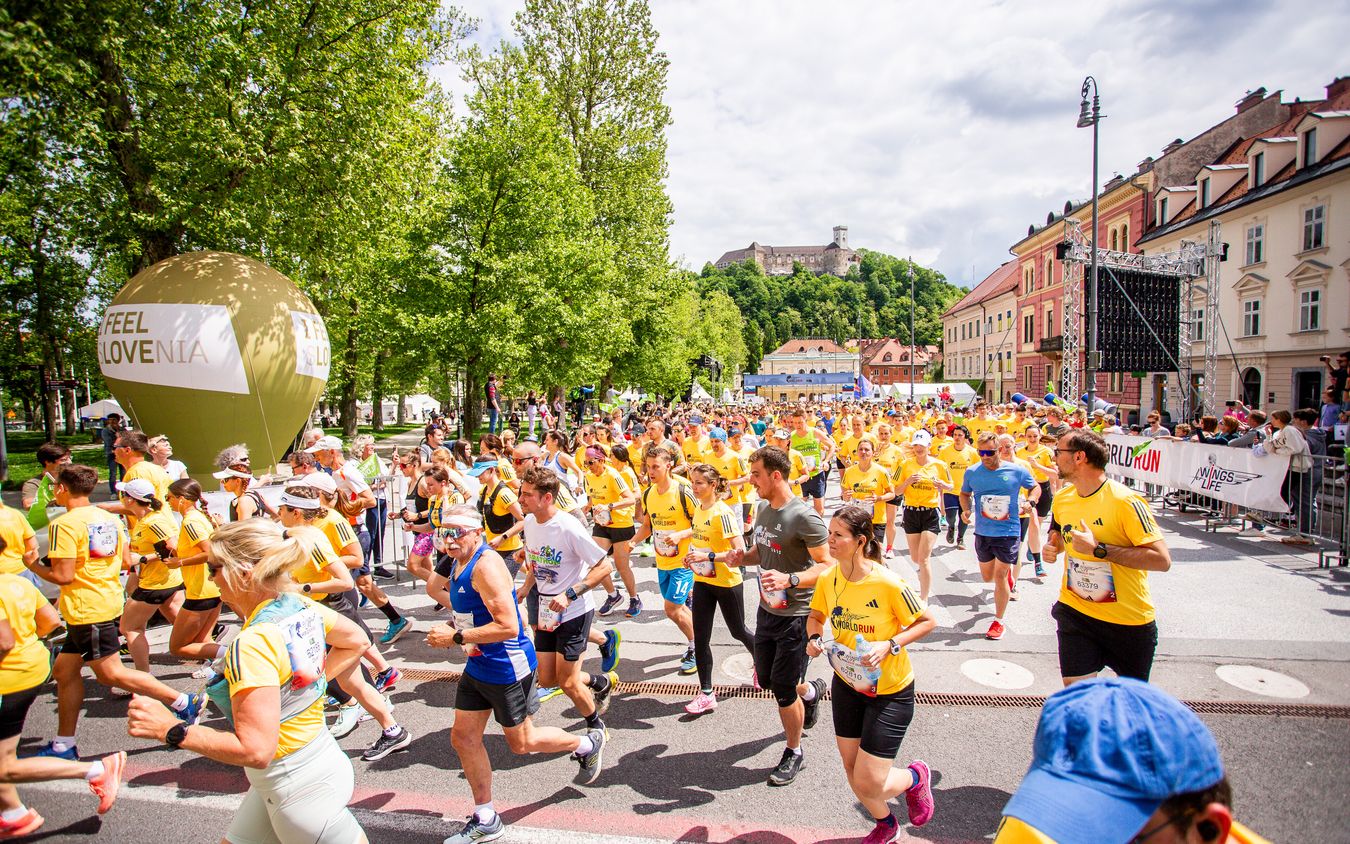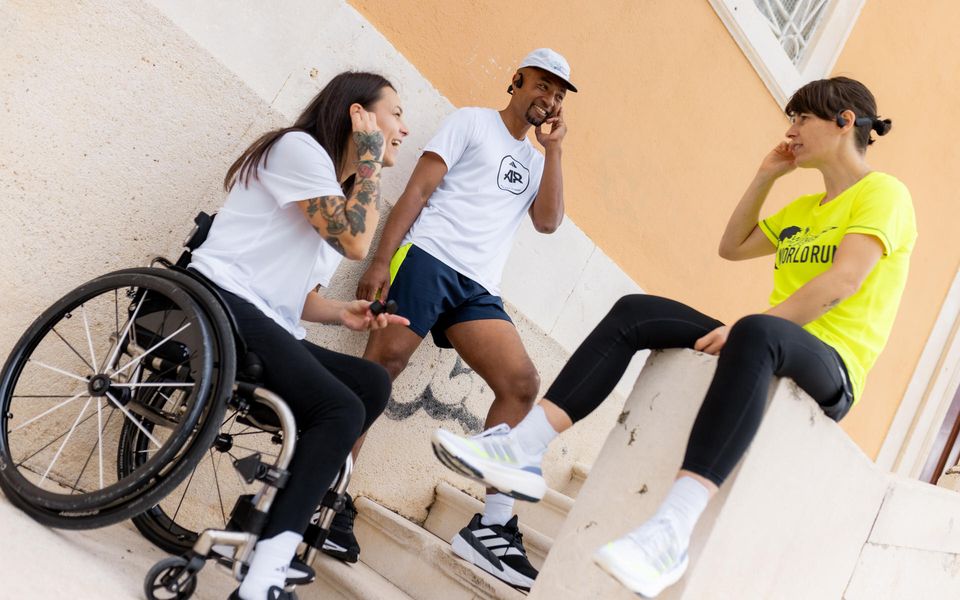Runners collected over 8 million euros for charity today

Today, for the 11th time-in-a-row, the world once again ran for those who can't. At seven Flagship Runs in Slovenia, Poland, Netherlands, Croatia, Switzerland, Austria, Germany, and everywhere else where the participants joined the App Run, an amazing 265,818 participation fees were paid, out of which 3,940 in Slovenia.

At the Flagship Run in Ljubljana, in beautiful sunny weather, the fastest male participant was Domen Hafner (SLO) who covered 60.4km before being caught by the Catcher Car. The fastest female participant was Patrycja Talar (POL) with covered 47.7km. Globally, they ranked 14th and 9th, respectively.
The global winner was Tomoya Watanabe (JPN). In his local town Fukuoki, he let the Catcher Car pass him at 70.1km. Thus, he improved the world record of this run by 1km. He ran with the app, and in front of the cameras all the time. In the female category, the fastest was Dominika Stelmach (POL) with covered 55km. She ran in Poznan.

Domen Hafner, the fastest on the Slovenian track, was happy about his success:
“The feeling is great. I do not train for this run, as we do not cover such distances in our athletics trainings where everything is more intense. Here, one runs relatively slowly. From 35th kilometer, I plunged into the unknown. I went on, without expectations, unencumbered. What I worried the most was what will happen with my legs after 40 km, whether there will be some difficulties. There were none and the result is here.”

With today's charity run, all over the world through participation fees EUR 8,104,499 were collected, and over the past eleven years a total of EUR 51.93 million. 100% of all proceeds goes to spinal cord research to find the cure for spinal cord injury.
Finish line chases the competitors
The 11th edition of the charity run Wings for Life World Run once again united runners from the whole world to help find the cure for spinal cord injury. At this special format run, the runners start at the same time all over the world, and half an hour later Catcher Cars start chasing them. These are equipped with the most advanced satellite technology, all the time connected to the control centre in Austria. The Catcher Car speed gradually increases during the run, and after four hours they are driving at a speed of 30km/h. The cars persists at this speed until the last runner on their track is caught. Once a runner is caught by a Catcher Car, that runner's race is over, and the covered distance presents the result. Behind the wheels of the Catcher Cars in Slovenia, provided by Volkswagen, were the rally drivers Mark Škulj and Jaka Cevc.

Even competitors in wheelchairs
Each year, Wings for Life World Run welcomes numerous competitors in classical wheelchairs. In Slovenia, one of them was a 23-year-old professional paraskier Jernej Slivnik (SLO). The Slovenian freestyle skier Filip Flisar greeted him from the passenger seat of the I.D. Buzz Catcher Car at 28km. Jernej improved his last year's result by 5km, and announced to cover more than 30km next year. He was accompanied by the ski jumper Taja Bodlaj (SLO). Today, Jernej was the second-best competitior in a wheelchair, overtaken only by Matej Arh (SLO) who finished at 35.7km.

“I aimed at 30 kilometres, but this remained a wish. I'm extremely satisfied with 28, especially because I'm not completely healthy, but the conditions were great. We'll definitely meet again next year,” said Jernej.
Filip Flisar, who repeated his role of a Catcher Car co-driver, and particularly a motivator for the last couple of hundred metres, did not hide his enthusiasm: “It was amazing, like every year. Beautiful weather, smiling people, perfect conditions for us and the runners, and all that for a good cause. My vocal cords lasted, barely, but I needed to properly cheer for the people.”
Pre-registration for the Wings for Life World Run 2025 is already open.

Wings For Life Foundation, since 2004
Since 2004, the cure for spinal cord injury has been systematically searched for under the auspices of the Wings For Life Foundation. At that time, the friends Dietrich Mateschitz and Heinz Kinigadner established the Foundation. Up until then, there were very few targeted researches, and there was always a lack of financial support. In 2014, the Foundation started collecting finances also through organizing the global run. Anita Gerhardter, CEO of the Foundation, is already looking forward to the next event: “This Run is always special, anyone can participate, and all proceeds go for a good cause. The more money we collect, the more studies we can support, and the sooner we will reach our common goal.”


